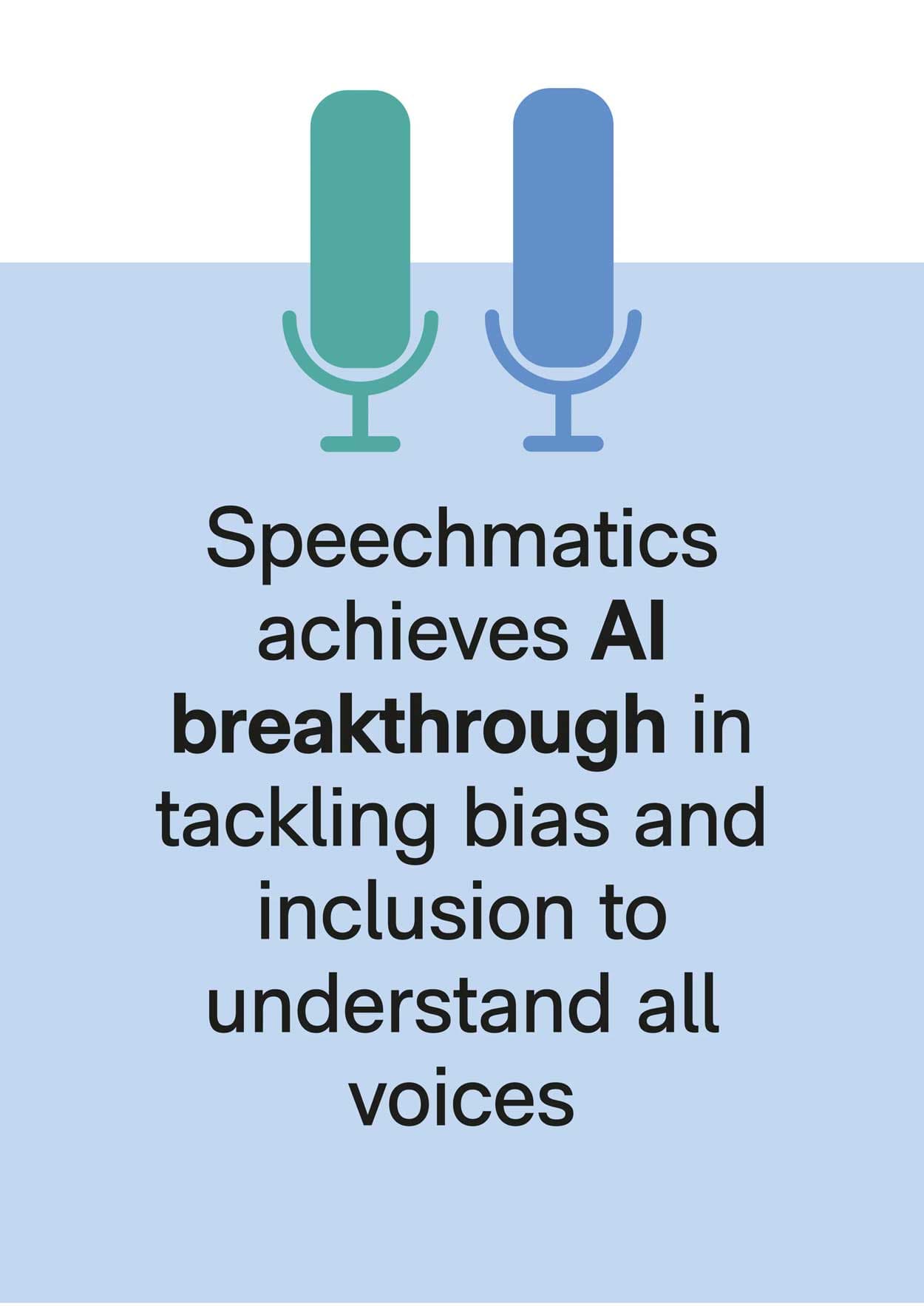Oct 26, 2021 | Read time 2 min
Speechmatics achieves AI breakthrough, beating tech giants in tackling bias and inclusion to understand all voices
Speechmatics’ launches pioneering Autonomous Speech Recognition software, outperforming Amazon, Apple, Google, and Microsoft.
Cambridge company’s pioneering self-supervised learning technology reduces speech recognition errors for African American voices by 45% versus Amazon, Apple, Google, and Microsoft.
Speechmatics, the leading speech recognition technology scaleup, has today launched its ‘Autonomous Speech Recognition’ software. Using the latest techniques in deep learning and with the introduction of its breakthrough self-supervised models, Speechmatics outperforms Amazon, Apple, Google, and Microsoft in the company’s latest step towards its mission to understand all voices.
Based on datasets used in Stanford’s ‘Racial Disparities in Speech Recognition’ study, Speechmatics recorded an overall accuracy of 82.8% for African American voices compared to Google (68.6%) and Amazon (68.6). This level of accuracy equates to a 45% reduction in speech recognition errors – the equivalent of three words in an average sentence. Speechmatics’ Autonomous Speech Recognition delivers similar improvements in accuracy across accents, dialects, age, and other sociodemographic characteristics.
Up until now, misunderstanding in speech recognition has been commonplace due to the limited amount of labeled data available to train on. Labeled data must be manually ‘tagged’ or ‘classified’ by humans which not only limits the amount of available data for training but also the representation of all voices. With this breakthrough, Speechmatics’ technology is trained on huge amounts of unlabelled data direct from the internet such as social media content and podcasts. By using self-supervised learning, the technology is now trained on 1.1 million hours of audio – an increase from 30,000 hours. This delivers a far more comprehensive representation of all voices and dramatically reduces AI bias and errors in speech recognition.
Speechmatics also outperforms competitors on children’s voices – which are notoriously challenging to recognize using legacy speech recognition technology. Speechmatics recorded 91.8% accuracy compared to Google (83.4%) and Deepgram (82.3%) based on the open-source project Common Voice.
Katy Wigdahl, CEO of Speechmatics, comments:
“We are on a mission to deliver the next generation of machine learning capabilities and through that offer more inclusive and accessible speech technology. This announcement today is a huge step towards achieving that mission.
Our focus on tackling AI bias has led to this monumental leap forward in the speech recognition industry and the ripple effect will lead to changes in a multitude of different scenarios. Think of the incorrect captions we see on social media, court hearings where words are mistranscribed and eLearning platforms that have struggled with children’s voices throughout the pandemic. Errors people have had to accept until now can have a tangible impact on their daily lives.”
Allison Zhu Koenecke, Lead Author of the Stanford study on speech recognition:
“It’s critical to study and improve fairness in speech-to-text systems given the potential for disparate harm to individuals through downstream sectors ranging from healthcare to criminal justice.”